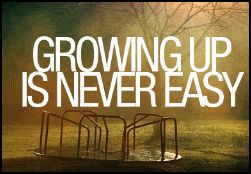Christmas and heaven are both for children. Jesus made it clear that the Kingdom of heaven was for kids. Several times he said  that “unless you turn and become like these little ones, you will never enter into the Kingdom of Heaven.” (Matthew 18:3). The specific characteristics of children that are desirable have to do with their helplessness, humility, acceptance, and childlike faith. Unless we become like children, we can’t enter into God’s Kingdom. Yet, there are several passages that exhort us not to be like children. We read in 1 Corinthians 14:20, “Brothers, do not be children in your thinking. Be infants in evil, but in your thinking be mature.”
that “unless you turn and become like these little ones, you will never enter into the Kingdom of Heaven.” (Matthew 18:3). The specific characteristics of children that are desirable have to do with their helplessness, humility, acceptance, and childlike faith. Unless we become like children, we can’t enter into God’s Kingdom. Yet, there are several passages that exhort us not to be like children. We read in 1 Corinthians 14:20, “Brothers, do not be children in your thinking. Be infants in evil, but in your thinking be mature.”
The scriptures are full of such paradoxes. We must give up our lives or die to ourselves if we are to truly live. We must give if we are to receive. We must become last if we wish to be first. We must lose it all in order to gain it all. We must become the least in order to rise to greatness. It goes on, but the point I want to make is that Jesus often taught us in paradoxes. Paradoxes are seen everywhere in Jesus’ life as well as in his teachings. He’s often proclaimed the son of Mary, yet he’s to be called the son of God. He was born in Bethlehem, the city of the kings, but lived in Nazareth, a city from which nothing good could ever come. He was born a king, yet born in a stable. He was worshipped by Israeli Shepherds and foreign Kings while the current King of Israel, Herod, sought to take His life. Angel’s announced His arrival, but there was no room for Him at the Inn.
Leonard Sweet describes this characteristic of Jesus’ life as being “surround sound.” It’s like stereo; two sounds, each coming from a different direction. We are exhorted to be like children, but not to think like children. We need to think like adults. I’ve often been impressed with how children who grow up in the church have a strong faith, participate in many church activities, profess faith, are baptized and partake of communion services, read their bibles, etc, and yet when they leave home for college, military, or a career they often lose their faith. They have been taught the Biblical truths at home and in the church, but haven’t learned how to think about the truths they have been taught as adults. A child might think Christianity has all the answers. An adult believer, on the other hand, wrestles honestly with tough questions trusting that God has the answers even if we can’t come up with them.
Chuck
“…we are to grow up in every way into him who is the head, into Christ…” Ephesians 4:15